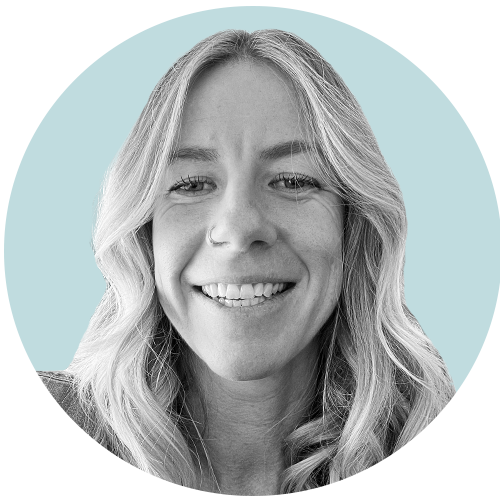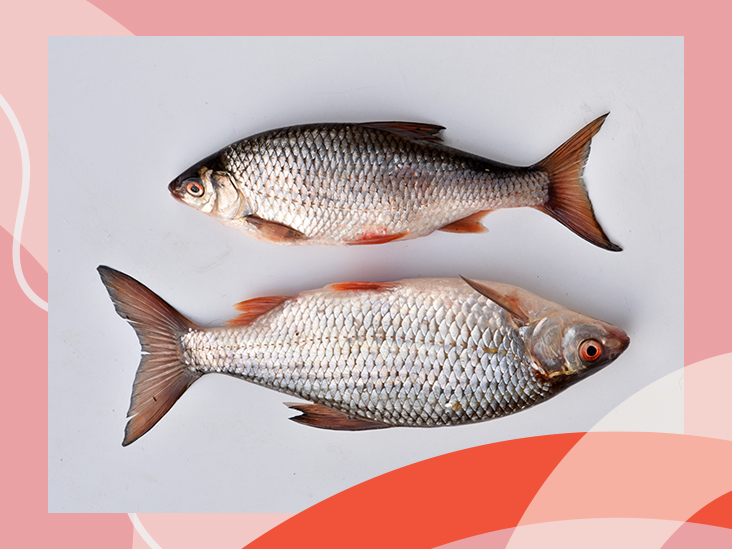🎣
  |
͏ ͏ ͏ ͏ ͏ ͏ ͏ ͏ ͏ ͏ ͏ ͏ ͏ ͏ ͏ ͏ ͏ ͏ ͏ ͏ ͏ ͏ ͏ ͏ ͏ ͏ ͏ ͏ ͏ ͏ ͏ ͏ ͏ ͏ ͏ ͏ ͏ ͏
| | | I try to eat fish a couple of times a week, and for the most part, I choose wild-caught fish (when it's available). Although it's a bit more expensive, I'm wary of the potential environmental hazards of marine aquaculture, i.e., the dominant method of fish farming in the United States. | | That said, farm-raised fish is often a lot cheaper than wild-caught. And in many places, you can't find wild-caught options anymore. Considering how important fish can be for a balanced diet, I wanted to get an expert's take on the health aspects of farm-raised fish. Today, Kirsten Seele, a registered dietitian at Healthline, gives her two cents. | | | | | | | Fish for dinner!
Ginger Wojcik
Newsletter Editor, Healthline |  | | Written by Ginger Wojcik
July 17, 2025 • 3 min read | | | |  | | | | Q: | What are the nutritional differences between wild-caught and farmed fish? | | | A: | The nutritional differences between wild-caught fish and farmed fish are negligible. Nutritionally speaking, the most important goal is to eat at least 2 servings (3 ounces cooked is 1 serving) of fish per week, regardless of where the fish originated.
Fish is one of the healthiest foods out there: It's low in saturated fat, and high in protein, omega-3 fatty acids, and micronutrients like iodine, selenium, and B vitamins. Fatty fish, such as salmon, tuna, and mackerel, are particularly nutritious.
But in some areas, wild-caught fish can be difficult (and expensive) to come by. That has led to the rise of aquaculture, an innovative approach to breeding and farming fish. Unlike wild-caught fish, which eat based on their environment, farmed fish are fed a consistent diet of fishmeal and fish oils.
Studies have found that wild-caught salmon may be higher in minerals like calcium and iron, but slightly higher in cholesterol. Farmed salmon may be equal in protein, but higher in total fat. The overall ratio of omega-3 to omega-6 polyunsaturated fats may be similar between the two types of salmon, meaning they both provide a balanced dose of these key nutrients.
Ongoing research shows that we can produce a sustainable fish supply and increase the nutritional value of fish. This has been done on various fish by changing the food supply given to them, therefore increasing omega-3 values.
If you're concerned about the environmental hazards of farmed fish, look for fish from "land-based" farms. Unlike traditional fish farming, which raises fish in either freshwater or marine-based pens, land-based fish farms are fully contained and cause less contamination to the surrounding environment.
Before you go, enjoy this easy 30-minute salmon meal and check out more nutritious recipes from Healthline! | | | | | Kirsten Seele, Registered Dietitian | | | Want to learn more about food, diets, cooking, or some other nutrition subject? Let us know at nutritionedition@healthline.com and we'll look into it for you! (Heads up, we may use your response in an upcoming newsletter.) | | | | | | | | | | What we're digesting | | 🛌 What does healthy sleep actually look like? Plus, how to achieve it. | | ⚕️ Hormone vs. nonhormone therapies for advanced prostate cancer. The treatment you'll receive depends on your stage and any underlying conditions you may have. | | 🚺 The effects of not including enough women in clinical trials. Though things have improved, major knowledge gaps still persist. | | 🥗 Managing type 2 diabetes without insulin? Here are six things to know. | | | | | How did you feel about this newsletter? | | | | | Email nutritionedition@healthline.com with comments related to this newsletter or topics you'd like to see in future editions. The newsletter editors read every message that lands in our inbox — yes, really! We look forward to hearing from you. | | | | Until next time, |  | Take care of yourself, and we'll see
you again soon! | | | | |  | | This edition was powered by | | omega-3 fatty acids.️ | | | | |
| View in browser
Did a friend send you this email? Subscribe here.
To see all newsletters, click here.
Privacy | Unsubscribe
We may feature your messages to our inbox within our content. Please do not provide any personal identifiable information. Replies may be edited for length and clarity. For more, see our Privacy Policy.
Our website services, content, and products are for informational purposes only. Healthline does not provide medical advice, diagnosis, or treatment and should not be used as a substitute for medical advice from a healthcare professional. Healthline encourages you to make any treatment decisions with your healthcare professional.
Every product we recommend has gone through either Healthline's or Optum Now's vetting processes. If you buy through links on this page, we may receive a small commission or other tangible benefit. Healthline has sole editorial control over this newsletter. Potential uses for the products listed here are not health claims made by the manufacturers. Healthline and Optum Now are owned by RVO Health.
© 2025 RVO Health
1101 Red Ventures Drive
Fort Mill, SC 29707 | | |  | |


Nema komentara:
Objavi komentar